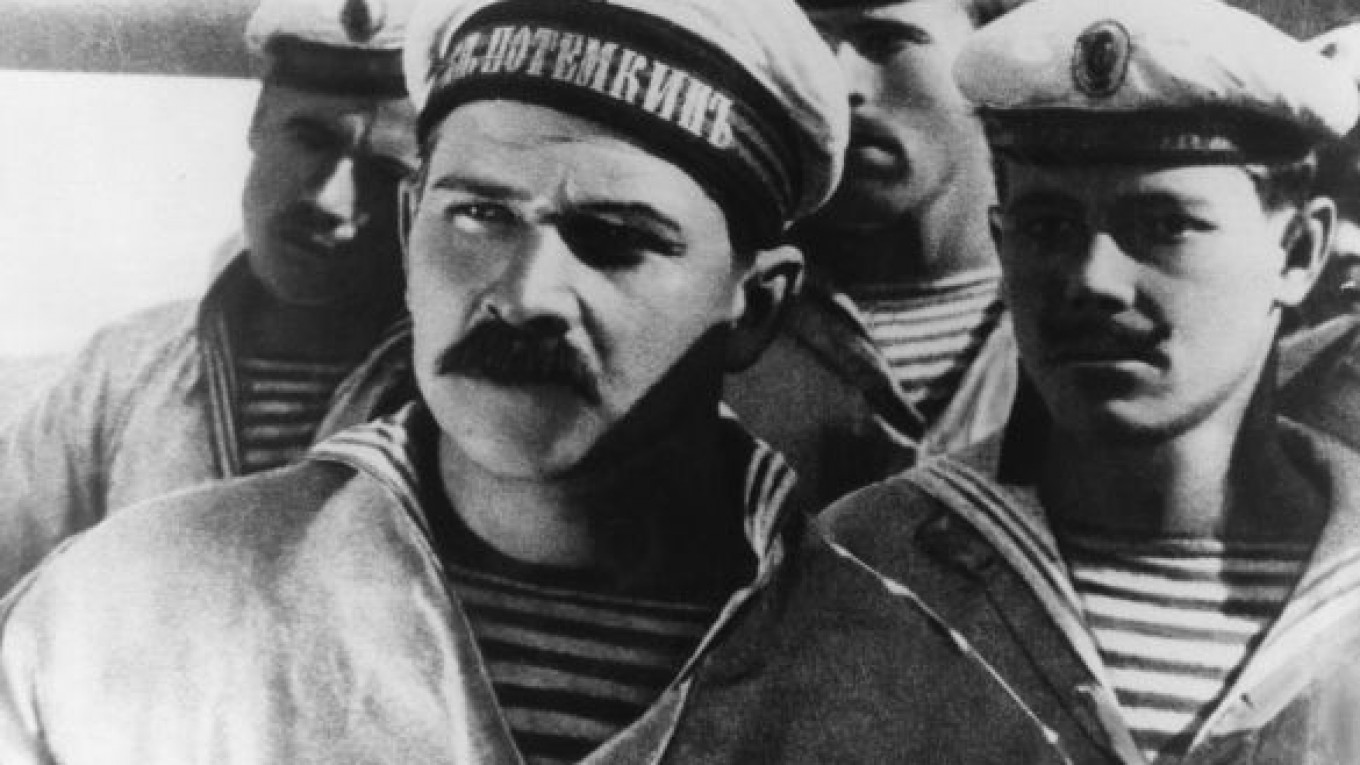Imagine if you had access to free, high-quality films of leading directors from the days of Charlie Chaplin to the present era on your computer. That is exactly what Russian film fans now have, as a huge archive of excellent Russian subtitled films from the days of the great film pioneer Sergei Eisenstein to the present era of popular directors such as Alexei Balabanov and Karen Shakhnazarov is now on the web.
Thanks to Mosfilm Studios and RussoTurismo, any viewer can now check out the best of Russian film. The films on offer range impressively in subject, genre and director. Viewers can watch Eisenstein's greatest films: "The Battleship Potemkin," "October," "Alexander Nevsky," and "Ivan the Terrible," as well as his first major silent film, "Strike."
The most celebrated films of Andrei Tarkovsky, the second most famous Russian film director, are also readily available. They include his wartime drama "Ivan's Childhood," "Andrei Rublev," about the life and times of the gifted Russian medieval icon painter, as well as Tarkovsky's famous sci-fi movie "Solaris," "Mirror," which the New York Times called "a somber futuristic fantasy," "Nostalgia" and his final film, "Sacrifice," which has been compared to Swedish master Ingmar Bergman.
Many of the films uploaded are based on great Russian literary works. At least three of Alexander Pushkin's works have served as a basis for films on YouTube: "Ruslan and Lyudmila," "The Tale of Tsar Saltan," and "Boris Godunov," the first two directed by Alexander Ptushko and the third by Sergei Bondarchuk.
Gogol's "Viy," "Taras Bulba" and Goncharov's 1859 novel, "Oblomov," have also been made into films, as have at least three of Dostoevsky's masterpieces uploaded by RussoTurismo: "Crime and Punishment," "The Idiot" (in 10 parts), and "The Brothers Karamazov"(in 8 parts).
From Tolstoy's works, Mosfilm has adapted "Anna Karenina" and "The Cossacks," although its "War and Peace," directed by Sergei Bondarchuk, contains no subtitles.
World War II was a horrendous yet heroic experience for Russia. About 27 million Soviet people lost their lives, about two-thirds of them being civilians. Little wonder that so many Russian films deal with the war, directly or indirectly.
Mosfilm offers such movies as "The Fall of Berlin," made under Stalin and, of course, glorifying him. The perspective on the war from Soviet authorities during the Brezhnev era can be seen in Mosfilm's "Liberation" series.
Mosfilm movies that deal with the war on a less grandiose but more personal scale include "The Cranes Are Flying"(1957) and "Ballad of a Soldier"(1959). The following directors from the mid 1920s to the 1970s are all well represented: Grigori Alexandrov, Eldar Ryazanov, Alexander Ptushko, Leonid Gaidai, Larisa Shepitko and (her husband) Elem Klimov.
Films from the last twenty years of the twentieth century are also featured, including "Moscow Doesn't Believe in Tears," which received a U.S. Academy Award as best foreign film in 1981.
Two of the most important films of the perestroika era "My Friend Ivan Lapshin" and the Georgian film "Repentance," both of which were stylistically innovative and dealt with Stalinism in their own unique and critical ways, are on YouTube. Pavel Lungin's "Taxi Blues," for which he was recognized in 1990 at the Cannes Film Festival as best director, is on RussoTurismo.
RussoTurismo has also placed Nikita Mikhalkov's Oscar-winning "Burnt by the Sun" (1994) on YouTube, as well as several films from this century such as "Brother" (1997), its sequel, "Brother-2" (2000), and "Cargo 200"(2007), all by Alexei Balabanov, and modern films such as "The Cuckoo" (2002) and "How I Ended This Summer"(2010).
Walter G. Moss is a professor emeritus of history at Eastern Michigan University. A fuller version of this story can be found at
A Message from The Moscow Times:
Dear readers,
We are facing unprecedented challenges. Russia's Prosecutor General's Office has designated The Moscow Times as an "undesirable" organization, criminalizing our work and putting our staff at risk of prosecution. This follows our earlier unjust labeling as a "foreign agent."
These actions are direct attempts to silence independent journalism in Russia. The authorities claim our work "discredits the decisions of the Russian leadership." We see things differently: we strive to provide accurate, unbiased reporting on Russia.
We, the journalists of The Moscow Times, refuse to be silenced. But to continue our work, we need your help.
Your support, no matter how small, makes a world of difference. If you can, please support us monthly starting from just $2. It's quick to set up, and every contribution makes a significant impact.
By supporting The Moscow Times, you're defending open, independent journalism in the face of repression. Thank you for standing with us.
Remind me later.






